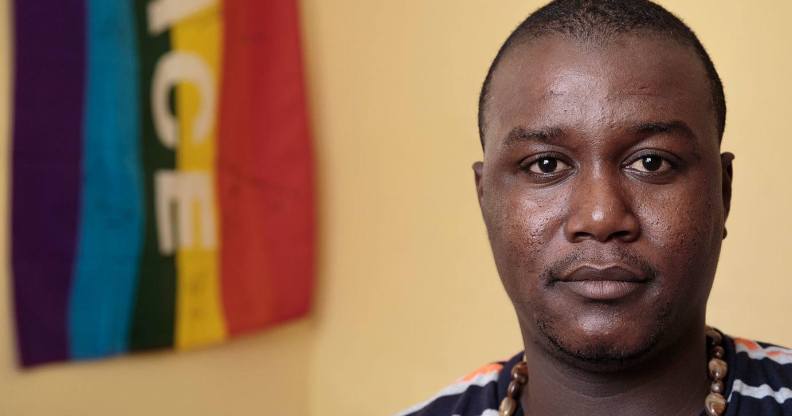One of Haiti’s most prominent and staunch queer campaigners has been found dead after threats of violence

Haitian civil rights campaigner Charlot Jeudy. (The American Jewish World Service)
Charlot Jeudy, the president of a leading LGBT+ organisation in Haiti, has been found dead, following years of threats of violence against him for speaking out against homophobia.
Long-time LGBT+ rights campaigner Charlot Jeudy was found dead on Monday (25 November) at his home in Port-au-Prince, the capital of Haiti.
According to his friend Geraldine Clair Museau, who spoke to the Associated Press, it was not immediately clear how he died and police did not return requests for comment.
Human rights organisation Outright said that the circumstances of his death were “suspicious” and that it feared his death may have been a hate crime, as Jeudy had been receiving “threatening and anonymous phone calls”.
“Even though the cause of death is yet unconfirmed, we fear it is part of a larger pattern of anti-LGBTIQ violence underway in Haiti, potentially focused on people visible within LGBTIQ organisations,” said Jessica Stern, executive director of OutRight Action International, in a press release.
“We call on on the police to carry out an immediate, credible and transparent police investigation into the death of Charlot Jeudy,” Stern added.
Jeudy was the leader of the group known as Kouraj – “courage”, in English – one of the most prominent LGBT+ rights organisations in Haiti.
In 2016, Jeudy was forced to cancel a festival celebrating the LGBT+ Afro-Caribbean community because of numerous threats of violence.
Despite the threats, Jeudy had vowed to continue fighting discrimination, writing on Kourag’s website: “Faced with such permanent and brutal stigmatisation, violence, and insults, many of us — if not the totality — have lost hope to see our own dignity respected. … That is what I want to fight.”
Same-sex sexual activity has been legal in the country since 1986, but violence against the LGBT+ community continues – in 2013, an engagement ceremony involving a British man in Haiti was reportedly targeted by a homophobic mob who threw molotov cocktails and rocks at the couple.
At the time, Jeudy told AFP: “There is no justification for this kind of attack on people in a private residence. Hopefully the justice authorities will react to the perpetrators of this act.”
The gay and lesbian community in Haiti is small, and has for a long time remained underground because of strong social opposition, and a fear of physical violence and loss of employment.

